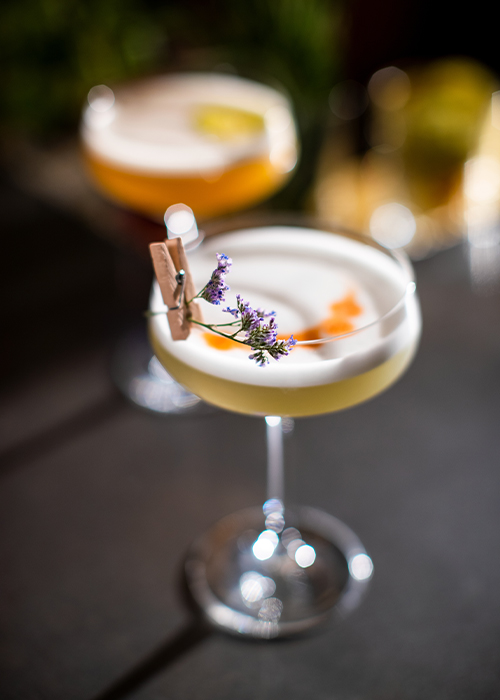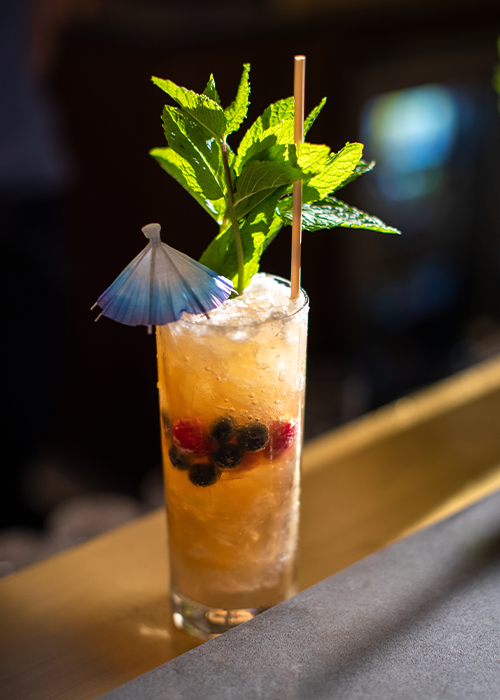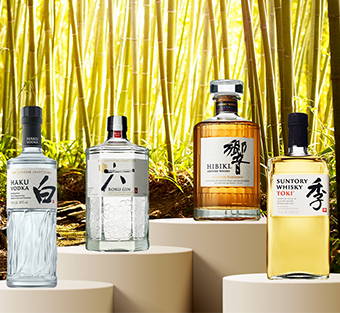Summer brings a bounty of seasonal produce to restaurant menus, but these fresh herbs, fruits, and vegetables don’t only wind up on diners’ plates. Bartenders also elevate their cocktail programs by using the freshest possible ingredients for mixers, garnishes, infusions, and cordials.
“The key to getting a vibrant flavor is to make sure you’re using freshly picked or fresh store-bought ingredients,” says Eric Vargas, lead bartender of Area 31 in Miami. “Most fruits and herbs can expire quickly and have a tendency to throw the flavor profile of a cocktail off balance from one day to the next, so be prepared to use your fresh ingredients as soon as possible to ensure you’re getting the best flavors.”
With an herb garden in its outdoor seating area to supply the kitchen and bar, the Musket Room in New York guarantees that freshness. “For herbs, especially garnishes, you want something that was just picked, and looks like it was just picked,” senior bartender Jon Brown says. “But even with the freshest herbs, you have to handle them with care, making sure they’re refrigerated and have a little moisture so they don’t dehydrate and wilt.”
Given how delicate those ingredients are, Brown says he likes to preserve their flavors by turning them into house-made syrups. “A syrup is a great way to take a snapshot of a fresh herb or fruit’s fresh characteristics,” he says. “You’re working with the fruit while it’s showing its best flavors and giving yourself the opportunity to preserve it — not forever, but at least for a little longer.”

In Washington, D.C., rosemary grown in the garden at the Conrad hotel’s rooftop bar, Summit, finds its way into a delightful bourbon-based cocktail. Nial Rhys Harris García, Conrad’s beverage director and sommelier, places three freshly picked sprigs into a bottle of bourbon from Virginia’s Belmont Farms distillery for four days, allowing the herb’s oils to bond with the spirit. He then blends the rosemary-infused bourbon with honey syrup and freshly squeezed lemon juice to create the Modernist, a cocktail topped with Prosecco and garnished with a lemon twist and, of course, a sprig of rosemary.
García says he enjoys using the fresh herbs not just for their flavor but because they make the hotel’s cocktail program more sustainable, reducing food waste and fuel use while also soaking up stormwater. “These herbs, combined with local spirits that we feature in all of our specialty cocktails, are our way to help reduce our carbon footprint in a luxury environment,” he says.
Farmheads Hospitality Group owns Brown Dog Farm in Wisconsin, which supplies Chicago’s Farm Bar and Farmhouse in Evanston, Ill., with a wide range of produce. Farm Bar uses the harvest to make its own cherry bitters, raspberry cordials, cucumber mint syrups, and walnut bitters — and uses honey from the farm’s 40 beehives.
“Nothing is frozen; we get fresh produce sent every day,” Farm Bar general manager Diego Montes says. “Our co-owner TJ Callahan, owner of Brown Dog Farm, comes in every week with something new and special to add that is just picked from the farm.”
Seasonal sippers also don’t have to be limited to the summer. Brown makes use of fresh produce throughout the year, mixing spirits with cilantro in the spring, cucumber in the summer, fig in the fall, and apple during winter. Plus, he says cardamom is a favorite year-round.

Vargas loves using Miami’s seasonal spring and summer fruits like mango, pineapple, and strawberries during the warmer months, but also likes to splash in some fall flavors whenever his heart desires. “I feel it’s OK to mix things up at times and not allow the season to dictate your palate,” he says. “I always encourage people to not be afraid of adding a bit of pumpkin spice to any cocktail throughout the year, if need be.”
Reviver at the Marriott Chicago Downtown Magnificent Mile uses plants grown on the hotel’s rooftop garden in its cocktails, infusing fruits and veggies into spirits and slapping or smoking herbs for aromatics. They also jar, pickle, and dehydrate produce so they can continue to incorporate their flavors into cocktails during the off-season.
For at-home mixologists looking to incorporate produce into their own drinks, Juan Carlos Merheb, Marriott’s director of event management, recommends visiting the local farmers market. “Buy with intention to use the item the same day, if possible, and keep the same temperature or environment it was in when purchased,” he says. “Seek out local or natural products to enhance your cocktails, like local honey or pure agave.”
Brown also encourages using local markets as a resource for your home bar. “There’s a bunch of your favorite, fresh ingredients to play around with — and it’s probably local,” he says. “ Talk with the farmers. Ask them what their favorites are, or what’s in season. Gather all your fresh, local produce, and experiment. Always experiment.”
